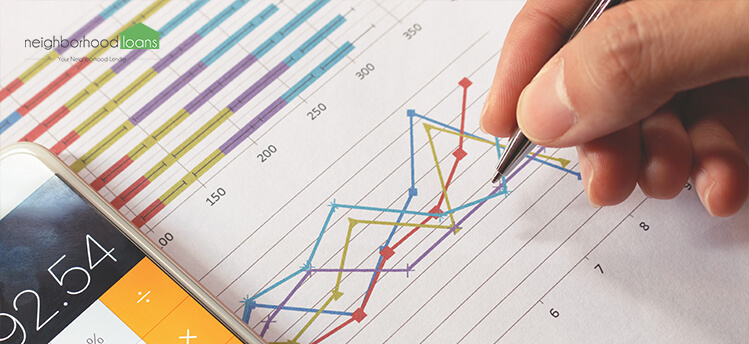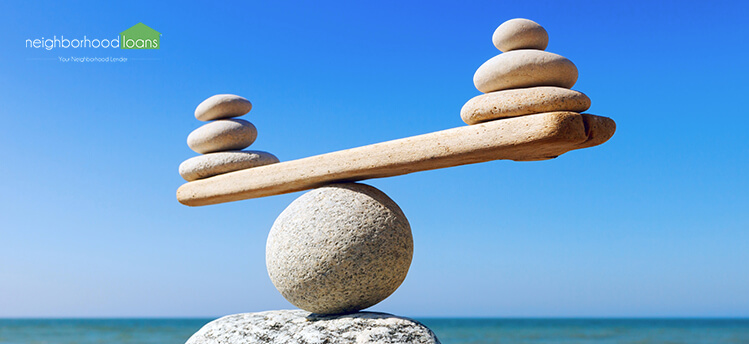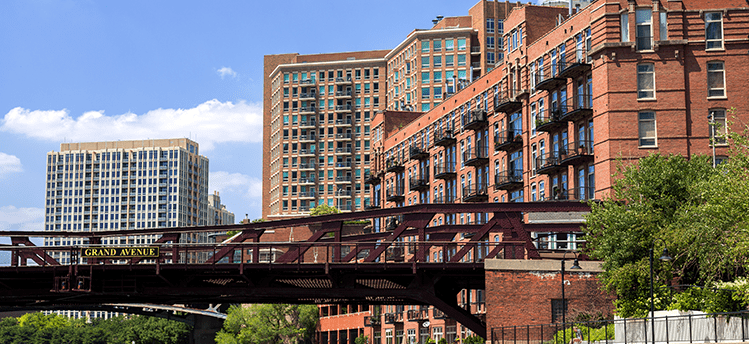Buying VS Renting in Chicago [2022: Final Verdict]
What a year 2020 has been. Already almost through the year and so much has happened. But still, the question remains throughout the years, is it better to buy or rent?
There are many factors to consider if buying or renting is the best option for you.
Ultimately, this decision is based on you and only you.
Don’t know where to start? We’ve broken it down so you can start asking yourself the right questions.
A Millennial Perspective
Take a look inside the life of a modern millennial.
Aged between 18 and 34, either starting their collegiate career, maintaining their professional career, or still trying to figure out what they want to do with their lives.
It’s a stressful time and millennials are expected to be financially stable early on like their parents, but it’s nearly impossible with the way society runs today.
The student debt millennials face is at historic highs. They are drowning with overwhelming costs and expenses that four-year schooling requires. Collectively, the most recent report shows $1.5 trillion in U.S. student loan debt. To break it down, the median monthly student loan payment for borrowers aged 20 to 30 years old is $300+.
That’s one expensive piece of paper.
With student loans being a heavy financial burden on millennials, it’s more difficult now than ever to be well off.
According to a study done by the Apartment List, it found that 80% of millennial renters want to purchase a home, but cannot because of one common factor: the ability to afford it.
According to a study done by the Apartment List, it found that 80% of millennial renters want to purchase a home, but cannot because of one common factor: the ability to afford it.
Survey Says…
Although the percentage of wanting to buy a home is high, the ability to do so soon is low. About 67% of respondents are planning to buy a home in three years or more. Compared to 53% in 2014.
16% of respondents are planning to buy a home within the next two years. Compared to 25% in 2014.
At this rate, people will continue to wait several years before purchasing a home.
Based on the respondents’ current rate of monthly savings, the survey concluded millennials in large metro areas will need at least a decade to save enough money for a 20% down payment on a condo.
However, if they were to make a down payment of 10%, one in three millennials would be able to save and afford that amount in five years or less.
Results highlight major issues in the housing market and point out a long-term crisis mainly for millennials. Their inability to financially support themselves with a mortgage is delaying their homeownership status.
Not only are millennials facing financial debt, but the availability of entry-level homes is scarce. While the demand for these homes increased, the quantity decreased.
Millennials are forced to make tough decisions about their living situation. They need to look at every angle before buying a home. They could: extend their budgets and purchase at higher debt-to-income ratios which heighten the risk of mortgage default, move to more affordable areas, or delay buying a home.
Millennials are suffering from student debt and inconsistent career opportunities. With these burdens, it’s difficult for them to afford and manage a mortgage.
Studies show with the shortage of entry-level homes available, and lack of savings, millennials’ may be forced to rent for years to come.
Statistically Speaking

Over the past three years, the wait time for millennials to purchase a home has continued to increase.
In 2014, 23% of respondents plan to wait five or more years before purchasing a home. Compared to 2016, 36% of respondents plan to wait five or more years. This number has jumped more than half.
Of the respondents that plan on buying a home in the future, 72% said affordability was the number one obstacle. Following with 45% of respondents said they are not ready to settle down. And finally, 36% of respondents said they are waiting to get married.
Owning a home is a huge responsibility, from maintenance, to finance, and everything in between. Millennials’ primary obstacle is the ability to afford it. But which financial part raises the most concern?
According to the survey, 53% are concerned about the down payment. It is a general rule of thumb to put down 20% to obtain a better mortgage. The more you put down, the less your monthly payments will be.
If you want to take a look at the different mortgage options available, check out this page, here.
36% are concerned about monthly payments. Again, this goes hand in hand with your down payment. The less you put down, the larger the monthly payments will be.
29% are concerned about a low credit score. The lower the credit, the smaller the loan.
The last 13% are concerned about other financial obligations a home requires.
Now that millennials are on the radar of saving for a mortgage, how many of them do so? With current living expenses, student debt, and low incomes, it is hard to set aside money for the future.
The survey concluded that 68% said they have saved less than $1,000 for a down payment, while 32% said they have not saved anything.
40% of respondents said they aren’t saving for a down payment every month. A low percentage of 15% saved $5,000 or more. And 29% are saving $200 or more each month.
On the other hand, older millennials, aged 25 to 34 years old, were twice as likely to have saved $10,000 for a down payment. While 42% of them haven’t started saving at all.
With the given results, it’s clear that millennials are in no hurry and nowhere near financially ready to buy a home.
Maybe with increased wage growth, they might have the potential to start saving earlier for a down payment.
With this pattern, it’s predicted that millennials will migrate to more financially friendly areas so they can afford to settle down.
Looking in a Different Light

Millennials are not in the market to buy, so let’s look at this from a different perspective.
Are you currently weighing out the pros and cons of renting and buying?
Before jumping to any conclusions, check out this list of buying and renting pros and cons.
Buying
Pros
- Build home equity and wealth
- Sizable tax deductions possible
- Your space, your rules (pets welcome!)
- Ability to remodel, expand or tear down
- Pride of ownership (social status, accomplishment)
- Potentially better for children/family structure
- Mortgage can improve your credit history/score
- Ability to borrow against your home (HELOC or cash-out)
- No more monthly payments once a mortgage is paid off
- Fixed payments (if applied for a fixed mortgage)
- Mortgages are the cheapest loans available
- No landlord
- Can exclude capital gains when you sell (partially)
- Inflation hedge
- Forced savings
- Leveraged investment
- Can rent out to others
- Retirement nest egg
- Can see and use proceeds for other investments
Cons
- Home prices can lose value
- Could overpay for your property
- Obtaining a mortgage and finding a home is a hassle
- Not everyone qualifies for a mortgage
- You must pay taxes and homeowners insurance
- Total housing payment can be more expensive
- Mortgage payment can rise (if using ARM)
- Sizable down payment necessary
- Maintenance costs can be expensive
- Pricey HOA dues (if applicable)
- Long-term commitment
- Increased liability and responsibility
- Transactional costs of buying and selling
- Ownership is stressful
- Taxes and insurance generally rise
- Home can be damaged or destroyed if not fully insured
- Can be foreclosed on and lose your home
Renting
Pros
- May be cheaper than a mortgage payment
- Fewer (if any) maintenance costs
- No down payment required (less deposit)
- No real estate taxes (renters’ insurance optional)
- Less stress (landlord’s property, their responsibility, not yours)
- Freedom to move or downsize when necessary
- No risk of home price depreciation
- Some utility bills may be included
- “Free” amenities such as pool, gym, security
- Money can be used for other, more profitable investments
- Can’t be foreclosed on
Cons
- Rental down payment may exceed monthly cost
- No ownership or wealth creation
- Payments never stop when renting
- Rent will rise over time (unless grandfathered in)
- Must deal with a landlord or management company (may be hard to get a hold of)
- No tax benefits
- Rules, regulations, and limitations (must follow or could get evicted)
- More temporary, less stability
- Always at the mercy of the property owner
Questions to Ask Yourself

As you can see, there are many factors to consider when deciding where you want to live.
Not only do you have to compare and contrast home buying and renting, but you also need to ask yourself the right questions to confirm your readiness.
Below are some starter questions that can help you determine if you’re ready or not:
What is my top financial priority?
Buying a home can slow down or delay any financial goals you had planned. You will need to outline your goals before purchasing a home.
Do you have to lower other expenses or cut down spending to afford monthly payments and rebuild your income? Before signing any papers, make sure you don’t have to drastically change your spending habits, you want to be completely comfortable with your monthly payments.
If you decide to cut back on certain expenses, you will save more money over time. Meaning, you will have extra cash to pay off your mortgage.
Are you thinking about starting a retirement or emergency fund? These plans may have to sit on the back burner for a bit until you are financially ready to start saving again.
Do I have savings for a down payment and closing costs?
Unlike home buying, renting requires a deposit to cover the first month’s rent when signing a lease.
Buying a home requires a large sum for a down payment based on a percentage of the home’s value. In addition, closing costs will add another 2-3% to the total bill.
Traditionally, it’s best to make a down payment of 20% to secure a decent amount of funding and avoid private mortgage insurance.
If you don’t have the most desired savings, aim towards building up for a down payment.
How do home and rent prices compare?

This ultimately depends on what area you live in.
If you’re dealing with high rent dues, making mortgage payments can be a better financial option.
However, if the home you want is in an expensive area, you may not be able to maintain a mortgage. It could potentially strip you of your hard-earned savings and leave you with nothing left over for other necessities.
How long do I plan to live there?
Not only do you need to plan your financial future, but your living situation as well.
If you plan to buy a home, the longer you live there, the better of an investment it will be.
Ask yourself:
Do you like your city?
Do you like your job?
Do you see yourself living in that area for several years?
If you answered yes, it may be worth investing in a mortgage.
However, you should budget your finances every year to see if living in a home for a certain amount of time will be worth your initial investment.
Will I qualify for a good deal on a mortgage?
Your mortgage lender will look at your income and credit history to determine what kind of mortgage loan you qualify for.
Typically, people aim for the lowest rates, meaning, they will have lower monthly payments.
This is usually spread out on a timeline of 15-30 years. The amount you put down also comes into effect when determining your mortgage loan.
What other costs will I be responsible for as a homeowner?
When comparing renting versus buying, be sure to factor in home-owning costs beyond mortgage principal and interest.
Homebuyers need to consider the homeowner’s insurance and property taxes.
You can’t forget the maintenance fees as well, including random repairs or broken appliances.
Homeowners can expect maintenance costs to be 1-3% of your home’s sale price. Renters do not have to worry about those expenses.
Am I comfortable with the risks of owning a home?
Like any investment, you have the chance to encounter risks.
There is no guarantee that you will get a good return on your investment. Therefore, you need to be 100% certain that when buying a home, you’re comfortable with all the responsibility it comes with.
You need to prepare for any unexpected life changes, such as unemployment or financial hardships.
If you’re still curious about what being a homeowner means, check out this blog, here.
How does renting versus owning affect my lifestyle?
What it comes down to is balancing out the pros and cons of renting versus buying.
Review your lifestyle, values, and goals, and correlate them to the idea of buying a home or renting.
For example:
Buying – you have the freedom, luxury, and control of what you want to do with your home.
Renting – you have the convenience of short-term commitment and don’t have to worry about maintenance issues.
Ultimately, this decision is solely based on your current finances, career, and overall lifestyle situation.
Breaking it Down
According to ATTOM Data Solution reports, buying is more affordable than renting in 66% of American housing markets.
To put it in perspective, the study found that a three-bedroom apartment is less affordable than monthly payments on a median-priced home in 354 out of 540 countries.
On average, a three-bedroom apartment would average 38.6% of wages. Opposed to a monthly mortgage payment on a median-sized home would only require 36.6% of average wages.
This report also discovered the decision to rent or buy a home depends on where you live.

Buying over renting is favored in big cities, which include Chicago, Phoenix, Miami, Las Vegas, Dallas, and Philadelphia.
Major metro areas are quite costly to maintain and rent, such as San Francisco, Washington D.C., Key West, New York City, and San Diego.
Rent dues are increasing faster than average wages in 62% of the counties studied. Meaning, people are struggling to financially support themselves in a rented apartment while working 40 or more hours a week.
Daren Blomquist, senior vice president for ATTOM Data Solutions, says the report clearly illustrates what many would-be buyers are going through.
Today’s low rate of homeownership and a low inventory of rental property has caused rental rates to increase during the housing recovery period.
66% of the markets studied proved it makes more sense to buy a home over renting. This applies to almost everyone that plans to live in that area and has a steady job or source of income.
Home buying is also appealing because home loans can be cheaper, which is a big reason why it costs less to buy a home than to rent. Experts have estimated buying is less expensive than renting, even when factoring in expenses like property taxes and insurance, they concluded these payments are similar in cost to rent obligations.
Besides, fixed rates on mortgages are at an all-time low. Another incentive for people to take advantage and invest in a mortgage. This gives people the ability to qualify for a better loan and afford a bigger property.
If renting is comparable to buying payments, it’s best to buy so you can invest, make a profit, and have a place of your own.
Not only does homebuying give you the pleasure of saving money, but it also gives you other perks.
Homeownership offers can offer people low monthly payments and gives the owner the ability to deduct their mortgage interest from their taxable income.
Owning a home allows you to build equity, which is not possible through renting.
Homebuyers also enjoy the privacy, space, and flexibility a rented apartment couldn’t offer.
Lastly, owning a home and paying a mortgage builds your credit history and can improve your credit score faster than renting.

